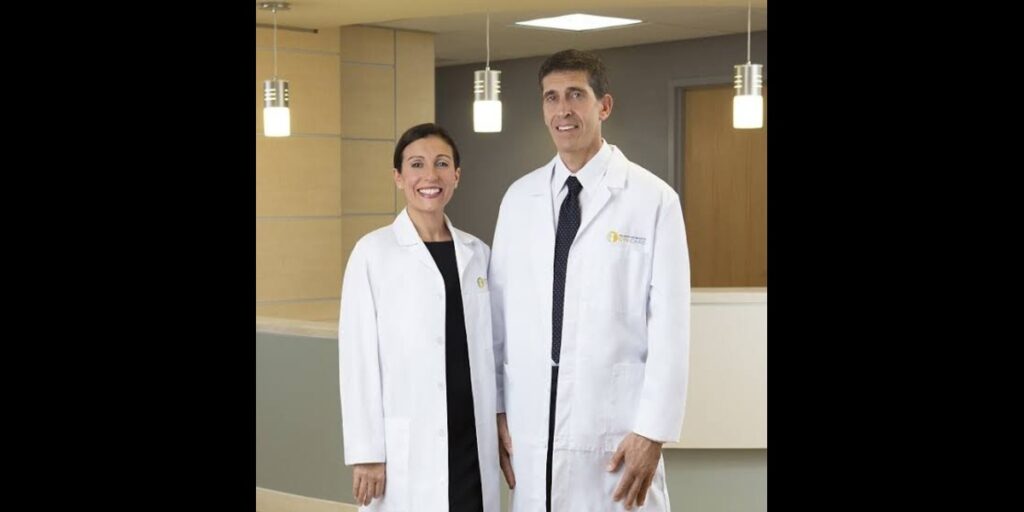Introduction Paul Mackoul MD Lawsuit
Imagine a bright morning in the bustling city of Washington D.C., where the lives of thousands are intertwined with the rhythm of the nation’s capital. Among the myriad of stories, one stands out: a tale of trust, medical expertise, and the unexpected turn of events that led to a courtroom. Dr. Paul Mackoul, a renowned gynecologic surgeon known for his groundbreaking work in minimally invasive surgery, finds himself at the center of a legal storm. This article delves into the lawsuit involving Paul Mackoul MD Lawsuit, examining the facts, statistics, and broader implications for the medical community and patients alike.
Background of Dr. Paul Mackoul
Dr. Paul Mackoul is a co-founder of The Center for Innovative GYN Care (CIGC) and has built a stellar reputation over the years. With numerous awards and recognitions to his name, he is highly regarded for his expertise in laparoscopic and robotic-assisted surgeries. His innovative approaches have significantly reduced recovery times and complications for thousands of women suffering from gynecological conditions.
The Lawsuit: An Overview
In 2023, Paul Mackoul MD Lawsuit became embroiled in a high-profile lawsuit filed by a former patient, Jane Doe. The lawsuit alleged medical malpractice, claiming that Dr. Mackoul’s surgical procedures led to severe complications and long-term health issues. The case garnered significant media attention, raising questions about patient safety, medical accountability, and the legal responsibilities of healthcare professionals.
Key Allegations and Claims
The plaintiff, Jane Doe, accused Dr. Mackoul of failing to obtain proper informed consent, performing unnecessary surgical procedures, and failing to provide adequate postoperative care. According to court documents, Jane Doe experienced chronic pain and other complications following a laparoscopic hysterectomy performed by Dr. Mackoul. The lawsuit sought substantial financial compensation for medical expenses, pain and suffering, and loss of income due to prolonged recovery periods.

Legal Proceedings and Developments
The lawsuit progressed through various stages, including pre-trial motions, discovery, and depositions. Both sides presented expert testimonies, with the plaintiff’s legal team emphasizing the alleged deviations from standard medical practices. Dr. Mackoul’s defense argued that the procedures were medically justified and performed within the bounds of accepted medical standards.
Statistical Insights
To understand the broader context of this case, it’s essential to examine some statistics related to medical malpractice and gynecologic surgeries in the United States:
- Medical Malpractice Statistics: According to a report by the National Practitioner Data Bank, there were over 13,000 medical malpractice payments made in the United States in 2020. Of these, approximately 12% involved surgical errors, highlighting the prevalence of such claims in the medical field.
- Gynecologic Surgery Outcomes: A study published in the American Journal of Obstetrics and Gynecology indicated that complications occur in about 3-6% of laparoscopic gynecologic surgeries. While minimally invasive techniques have reduced overall complication rates, the risk remains a critical concern for both patients and practitioners.
Implications for the Medical Community
The lawsuit against Dr. Mackoul underscores the importance of several key issues in the medical community:
- Informed Consent: Ensuring that patients fully understand the risks, benefits, and alternatives to surgical procedures is paramount. This case highlights the need for clear and comprehensive communication between doctors and patients.
- Standard of Care: Medical professionals must adhere to established standards of care and continuously update their knowledge and skills. Deviations from these standards can lead to significant legal and ethical consequences.
- Patient Safety: The primary responsibility of healthcare providers is to ensure patient safety. This includes rigorous preoperative assessments, meticulous surgical techniques, and thorough postoperative care.
The Patient’s Perspective
For Jane Doe, the lawsuit represents a quest for justice and accountability. Her story reflects the experiences of many patients who undergo medical procedures with the hope of improved health, only to face unexpected complications. Her case emphasizes the importance of patient advocacy and the need for healthcare systems to support patients through their recovery journeys.
Conclusion
The lawsuit involving Dr. Paul Mackoul is more than a legal battle; it is a reflection of the complex dynamics between medical innovation, patient safety, and legal accountability. As the case unfolds, it serves as a reminder to the medical community of the critical importance of adhering to the highest standards of care and maintaining transparent and empathetic communication with patients. For patients, it highlights the significance of being informed and vigilant about their healthcare choices. Ultimately, this case may lead to changes in medical practices and policies, aiming to enhance the trust and safety in the patient-doctor relationship.

